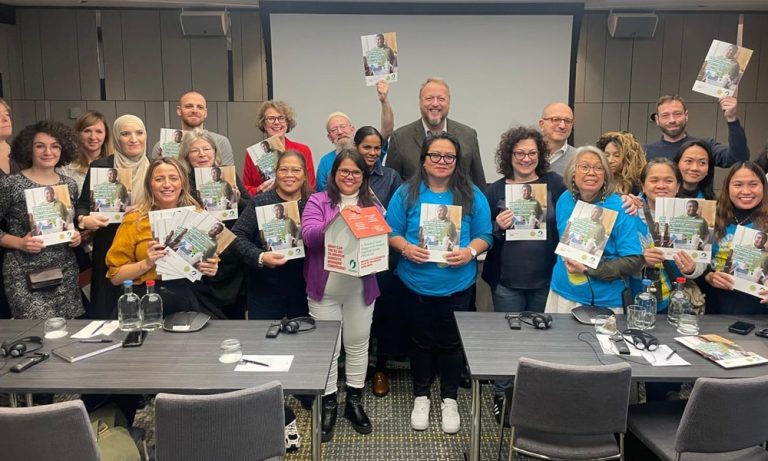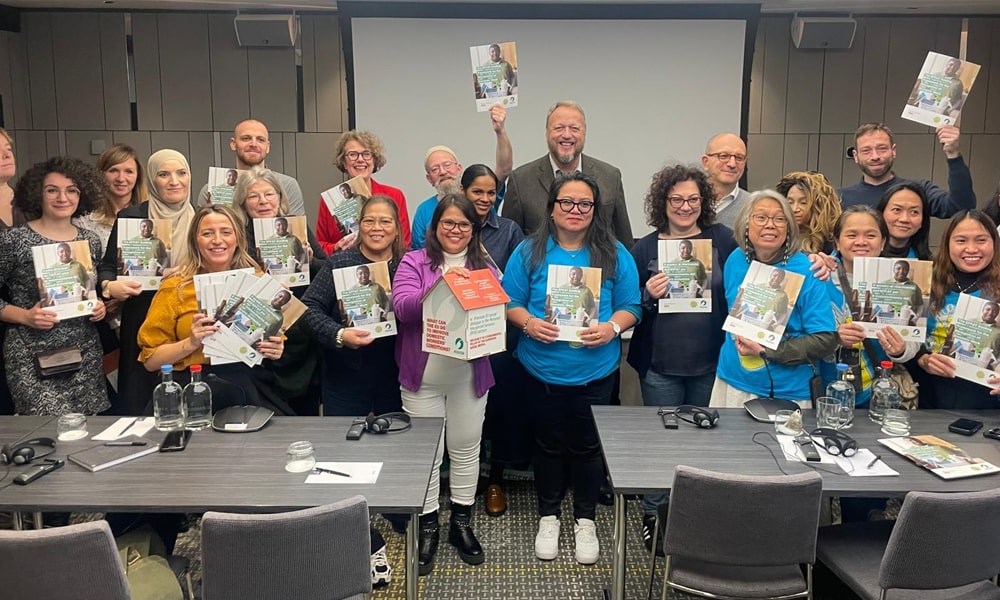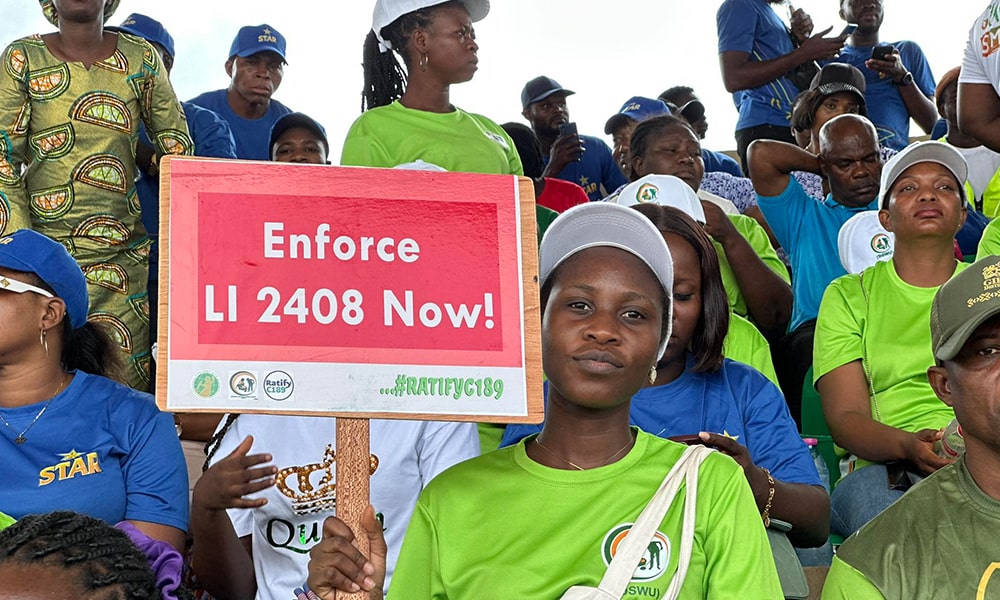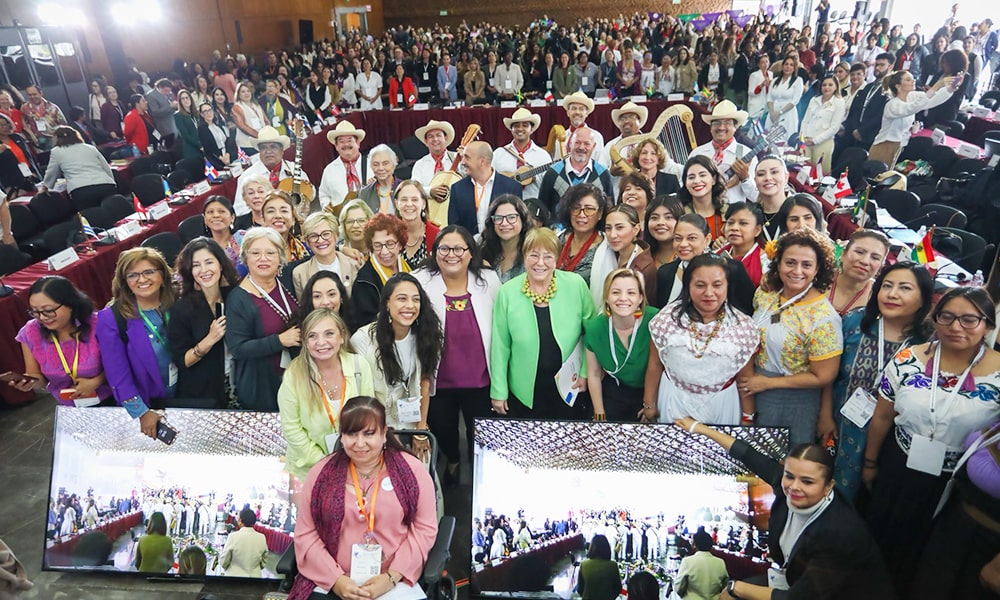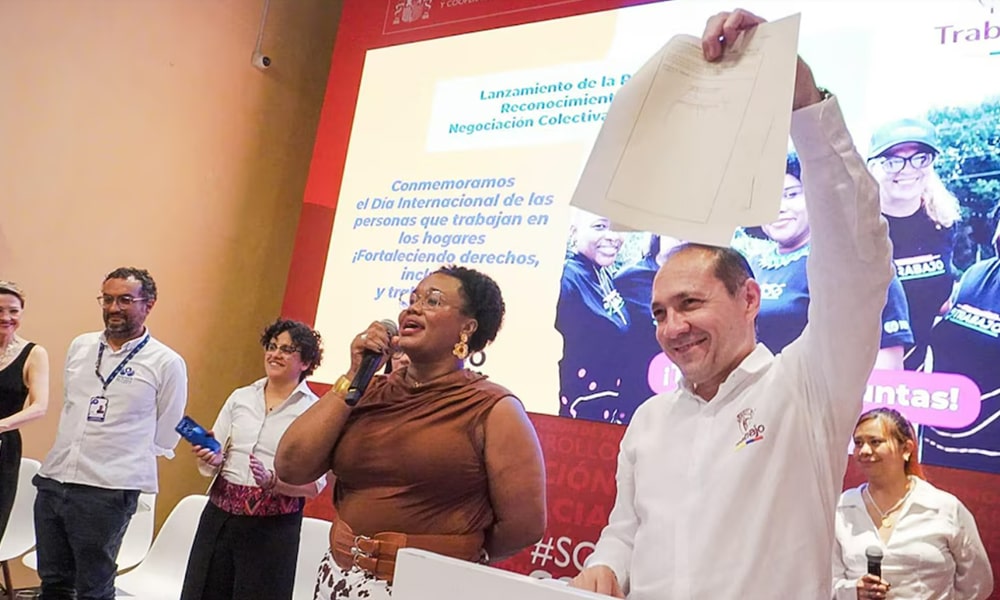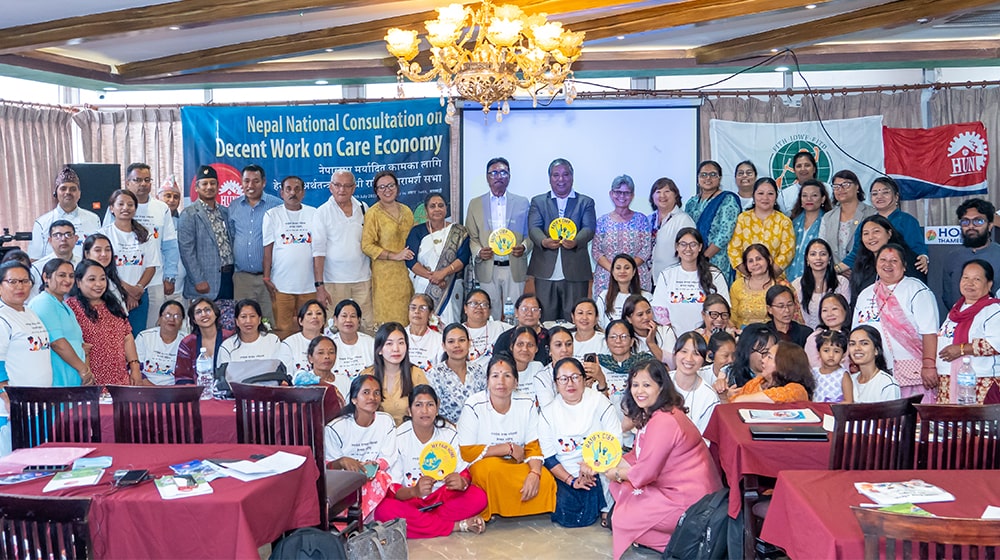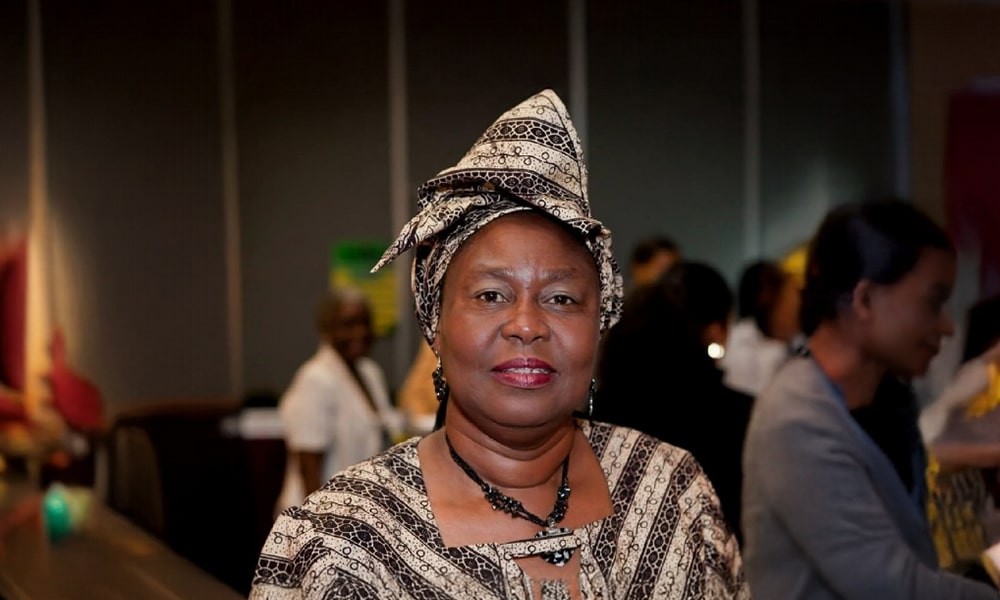
Shirley Pryce, a historic leader of the domestic workers movement, has been appointed as a member of the UN-Habitat Advisory Group on Gender Issues (AGGI) — an independent expert body that provides advice to UN-Habitat on gender equality and women’s empowerment in sustainable urban development. UN-Habitat, the United Nations agency for human settlements, promotes socially and environmentally sustainable cities and supports countries in harnessing urbanization for development and peace, advancing the Sustainable Development Goals and the New Urban Agenda through global policy guidance, technical cooperation, and programs that reduce inequality, poverty, and environmental risks.
Stepping into her new role, Shirley brings a clear vision of her priorities: “Access to adequate housing is a fundamental human right. When it comes to creating a sustainable future, women must be at the center of the urban agenda, as many of the Goals cannot be achieved if people do not have adequate housing. I want AGGI to aggressively build stakeholder and partnership engagement to understand and recognize how gender, work, and poverty intersect and impact women’s lives, and to work through a participatory approach where policies and programs are inclusive, equitable, and responsive to the needs of marginalized women, especially grassroots women and domestic workers.”
Shirley’s appointment as one of only 13 AGGI members worldwide represents a significant achievement for the domestic workers movement, expanding its presence in high-level spaces where democracy, gender equality, and women’s empowerment are advanced. The growing inclusion of domestic workers’ voices in the development of global policies demonstrates the collective power that they have built over the years. They are no longer observers — they are active players shaping their own working and living conditions in the era of care.
“As a grassroots domestic worker leader and a long-time advocate for gender equality and women’s empowerment, being on this board is a privilege, as it will ensure that the voices and concerns of domestic workers and grassroots women are heard and addressed in urban planning and policy-making processes.”
Shirley Pryce, President of the Jamaica Household Workers Union (JHWU) and founding member of the IDWF
A Lifetime on the Frontlines
After more than thirty years as a domestic worker, Jamaican activist Shirley Pryce knows what abuse and exploitation mean — she even slept in a doghouse at her employers’ home to support her family and pay for her education. No one is better placed to speak for those who endure injustice every day than someone who has experienced it herself. Shirley could have chosen passivity, but instead she chose the difficult path of struggle, committing herself unconditionally to her fellow domestic workers.
In 1991, Shirley spearheaded the creation of the Jamaica Household Workers Association, which later evolved into the Jamaica Household Workers Union (JHWU). She is also the co-founder and chairperson of the Caribbean Domestic Workers Network (CDWN) and a founding member of the International Domestic Workers Federation (IDWF), where she served on the Executive Committee from 2013 to 2023. In March 2025, she launched the Shirley Pryce Care in Action Foundation for Domestic Workers, which complements the JHWU’s organizing efforts by providing direct support: emergency health assistance, funeral grants, education and skills-training opportunities, and small scholarships for workers’ children.
Pryce played a prominent role in the global campaign for the adoption of ILO Convention 189 on Decent Work for Domestic Workers in 2011. In Jamaica, her advocacy was crucial for the country’s ratification of the Convention in 2016 and for the enforcement of domestic workers’ rights under the National Minimum Wage Orders (1975), the Holidays with Pay Act (1973), and the Employment Act (2014). She also led the campaign for the passage of the Sexual Harassment Act (2021), a national legal framework that applies to all workplaces, including households, and sets out clear procedures for complaints and employer responsibilities. Under her leadership, the JHWU promoted skills certification for domestic workers — a key step toward improving their income and advancing formalization.
Shirley has been recognized with both regional and international awards, including CARICOM’s Triennial Award for Women (2017) for her contribution to the advancement of women and society, and the Gender Equality Award (2023) from the Government of Canada. With her bold and fearless style, she has seized every opportunity for international visibility to elevate the demands of domestic workers and defend women’s rights.
Bold for Change
In her 2017 acceptance speech for the CARICOM award, Shirley Pryce said an iconic line: “People say that I am very bold. I am bold for change. When I approach government officials, I say: we are not asking you for favours; you are our government, and you’re here to work for us.” Those words perfectly capture the spirit of the IDWF Theory of Change, as they illustrate the power, resilience, and determination of domestic workers to achieve their goals. Shirley is living proof that leaders of the domestic workers movement have been instrumental in securing rights, recognition, and visibility for the sector, while the IDWF has strengthened their capacity to drive lasting change.
Although domestic workers have deep roots in histories of exclusion, exploitation, and racial segregation, they have forged an identity as workers — a whole-of-person identity deserving of dignity and respect. As they have come to fully understand the many layers of discrimination that have shaped their working lives, they have built a collective, intersectional identity based on their gender, race, ethnicity, class, caste, migration status, and other factors. From that understanding, they have developed multilayered strategies to dismantle oppression and advance their rights — strategies that are not only innovative and resourceful but also inclusive and expansive, as domestic workers are embedded in broader social movements fighting racism, xenophobia, homophobia, and misogyny.
From this unique identity, domestic workers have consolidated their power of self-representation and built their own narrative: they are an essential part of the working class — not victims or recipients of goodwill — and they are fully capable of speaking for themselves to advocate for their rights. This positions them as empowered to shape cultural and policy change.
This is why our movement has been able to introduce a groundbreaking labor-feminist agenda in the world of work — starting with the adoption of ILO Convention 189, and followed by enormous strides in domestic workers’ rights at the global, regional, and national levels. It is also why the IDWF — the first-ever woman-led international trade union in history — has moved from the margins of the organized labor movement to become a powerful and widely recognized Global Union Federation.
The leadership of Shirley Pryce embodies the symbolic and relational power of domestic workers to gain access to spaces of social dialogue where institutional power is built. Her appointment to the UN-Habitat Advisory Group on Gender Issues brings domestic workers’ perspectives to a forum that addresses key priorities for our movement, such as gender equality, women’s empowerment, care systems, poverty reduction, sustainable development, and climate action. Today, we can truly say that we have a seat at the global decision-making table.
“The IDWF has played a pivotal role in my journey, offering a platform for growth, solidarity, and collective action. As part of the Federation, I’ve received guidance and mentorship from experienced leaders, including pioneers like Myrtle Witbooi. The IDWF’s global presence has helped amplify my voice, allowing me to reach a broader audience and influence policy decisions.”
Shirley Pryce

